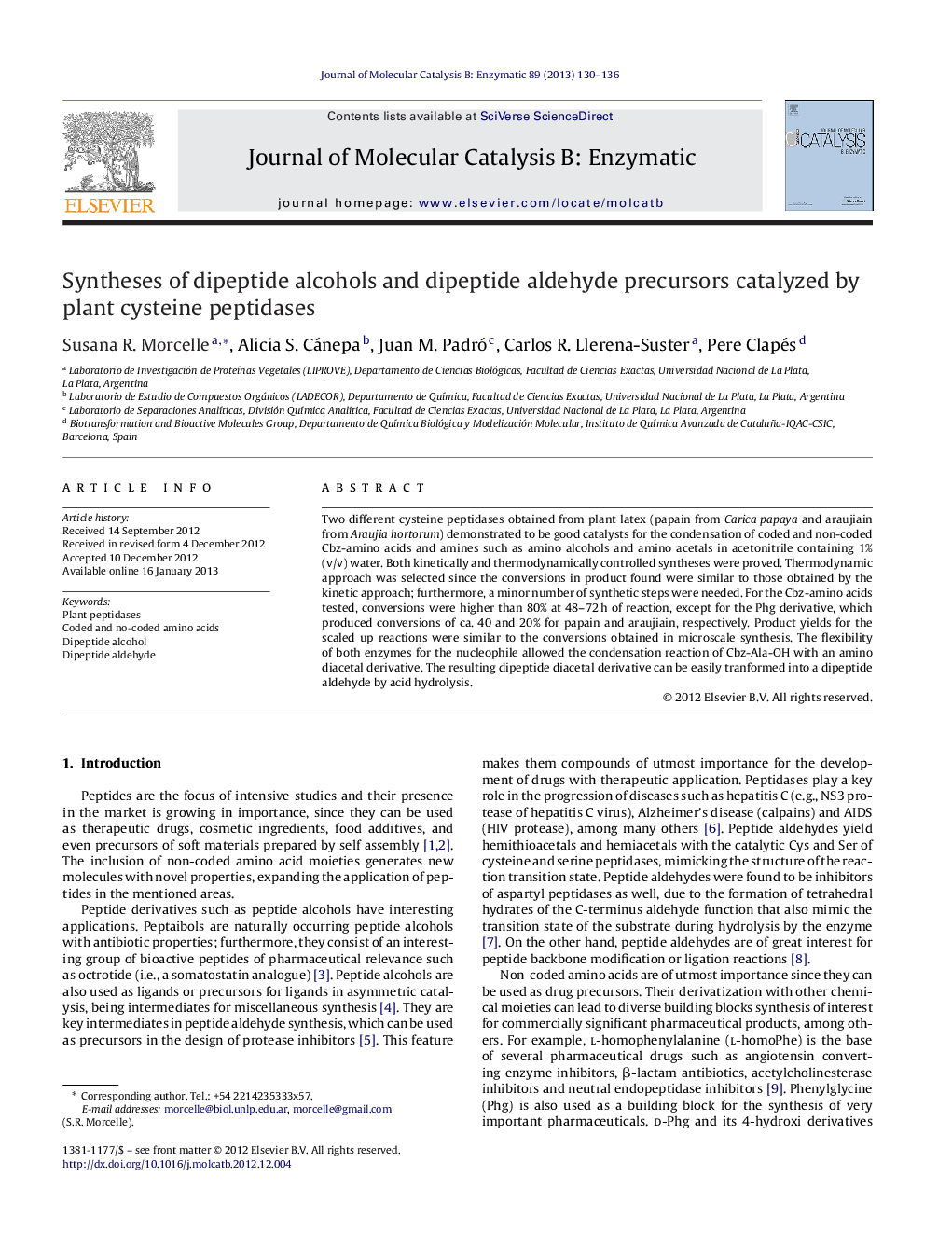| Article ID | Journal | Published Year | Pages | File Type |
|---|---|---|---|---|
| 70033 | Journal of Molecular Catalysis B: Enzymatic | 2013 | 7 Pages |
Two different cysteine peptidases obtained from plant latex (papain from Carica papaya and araujiain from Araujia hortorum) demonstrated to be good catalysts for the condensation of coded and non-coded Cbz-amino acids and amines such as amino alcohols and amino acetals in acetonitrile containing 1% (v/v) water. Both kinetically and thermodynamically controlled syntheses were proved. Thermodynamic approach was selected since the conversions in product found were similar to those obtained by the kinetic approach; furthermore, a minor number of synthetic steps were needed. For the Cbz-amino acids tested, conversions were higher than 80% at 48–72 h of reaction, except for the Phg derivative, which produced conversions of ca. 40 and 20% for papain and araujiain, respectively. Product yields for the scaled up reactions were similar to the conversions obtained in microscale synthesis. The flexibility of both enzymes for the nucleophile allowed the condensation reaction of Cbz-Ala-OH with an amino diacetal derivative. The resulting dipeptide diacetal derivative can be easily tranformed into a dipeptide aldehyde by acid hydrolysis.
Graphical abstractFigure optionsDownload full-size imageDownload as PowerPoint slideHighlights► Papain and araujiain catalyzed efficiently the synthesis of dipeptide alcohols containing coded and non-coded amino acids. ► Dipeptide alcohols were produced by thermodynamic-controlled synthesis. ► Kinetic synthesis approach rendered high conversions in product in absence of the biocatalyst. ► The synthesis of a dipeptide aldehyde diacetal was succesfully achieved by peptidase catalysis in good yields. ► The dipeptide aldehyde diacetal obtained could be unmasked to form the corresponding aldehyde by acid catalysis.
